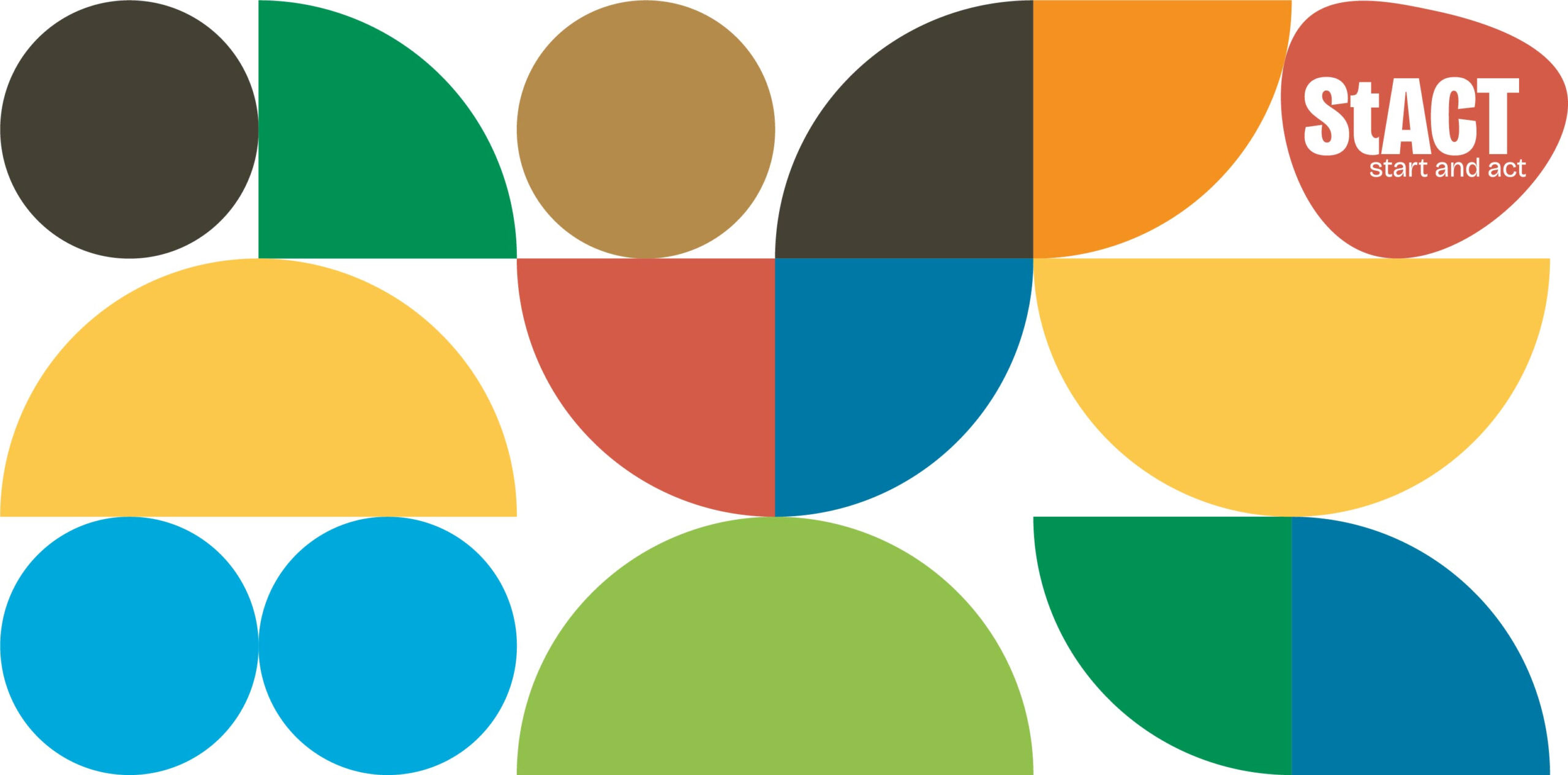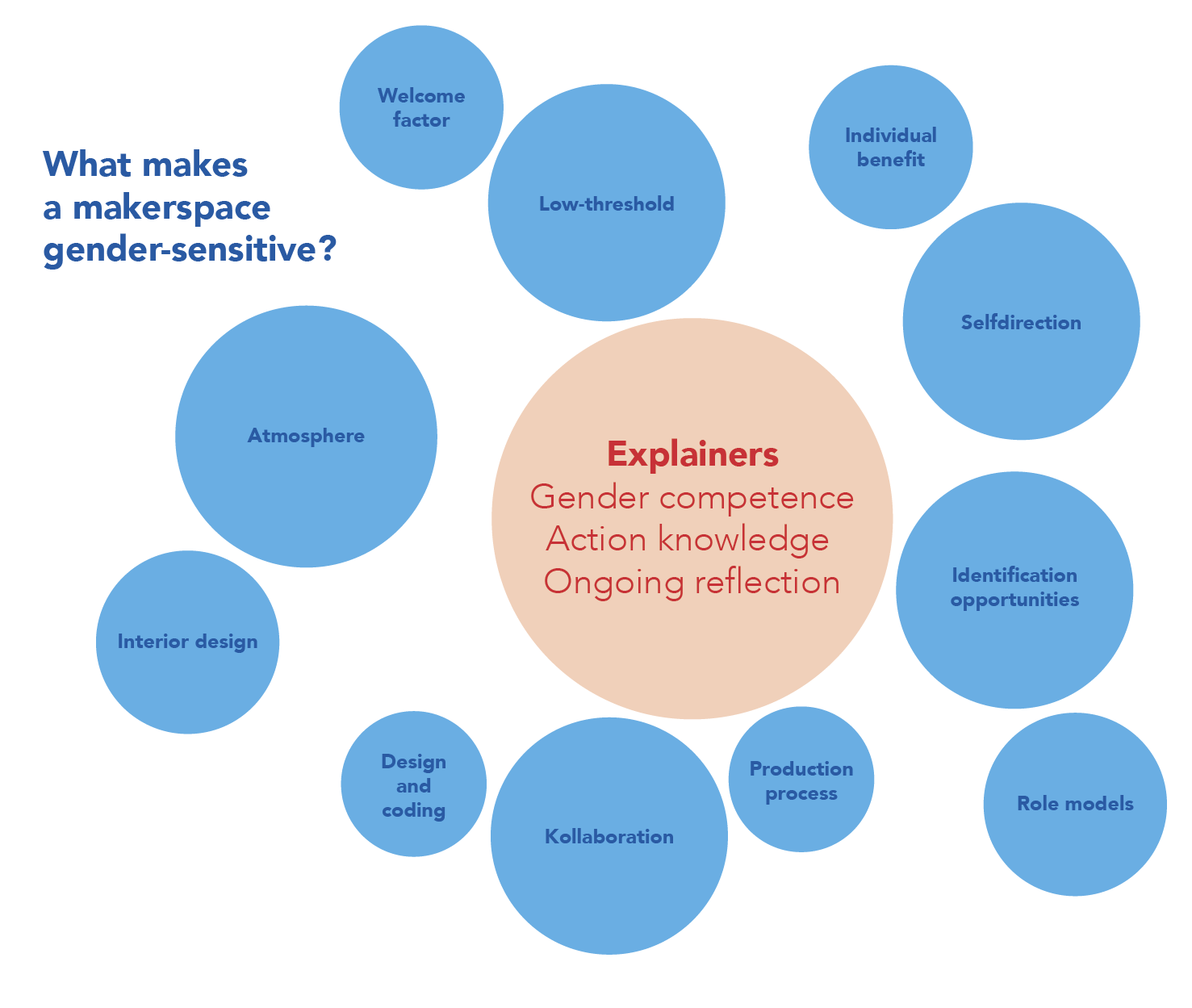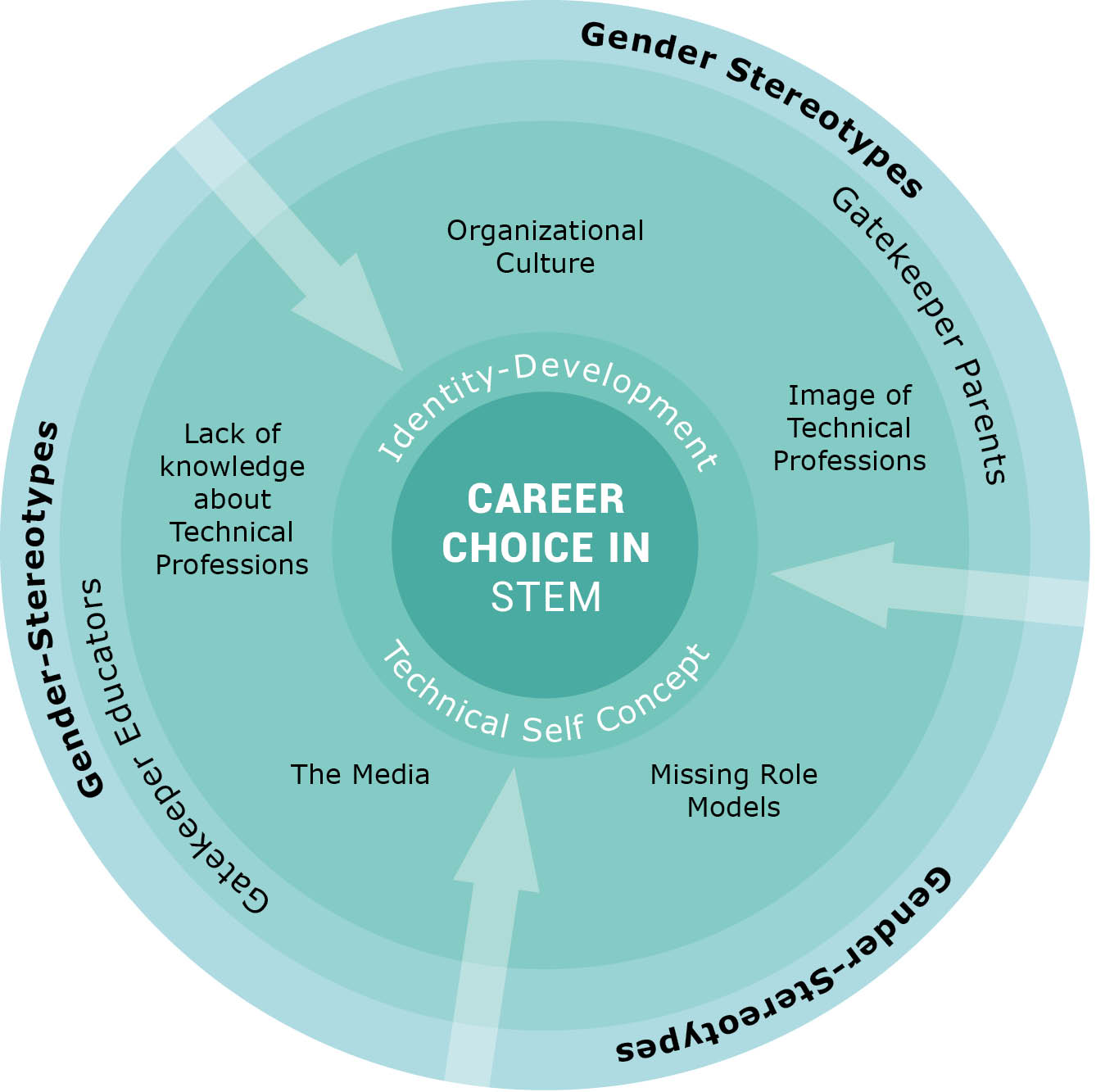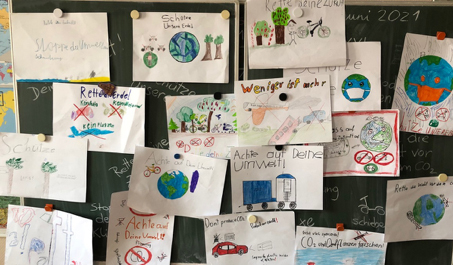Research
Our understanding of research is based on a Responsible Research and Innovation approach. This means that we focus on societal challenges and tie our activities to the highest ethical standards.
It is always the perspective of diverse users that guides us in our applied research activities. We work with genuine participation and co-creation throughout. In particular, we are interested in innovative topics of digitalization and requirements for a sustainable approach to the environment from the perspectives of diverse users.

Start and Act
The project “StAct – Start and Act” takes its starting point from the original meaning of the word “entreprendre”, which translates to “to undertake something”. It focuses on social and inclusive entrepreneurship in the digital world. Children and young people are empowered to express their ideas in self-directed research projects. In StAct, we provide a lump-sum grant of 1,000 euros for educators. This “collaboration grant” aims to enable children to engage with exciting topics in science and technology and to take on the role of researchers themselves.
Read more
Apply for a collaboration granthttps://stact.at/?page_id=204
StAct Websitehttps://stact.at

NextGenLab
The research project nextgen*LAB deals with gender-sensitive technology-education and asks what role the techLAB, the museum Maker*Space of the Technical Museum Vienna, can play in getting young people – especially young women* – excited about digital technologies and thus can contribute to their professional orientation. Within the framework of the project, essential factors were identified that make it possible to design a Maker*Space in a gender-sensitive way.
Read more
Zauchner, Sabine (2021). Gendersensibilität im Makerspace: Ja klar! TMW zine. https://www.technischesmuseum.at/gendersensibilitaet_im_makerspace_ja_klar
Zauchner, Sabine (2021). Rollenmodelle im TECHLAB. TMW zine. https://www.technischesmuseum.at/rollenmodelle_im_techlab

Parents and STEM
When it comes to mastering the challenges of digitalisation, the keyword “STEM”[1] is often mentioned. This reflects on those competences that have an influence on how individual participation opportunities in current technological innovations are shaped. Parents, the most important door openers for their children into STEM professions, are completely neglected in these discussions. E-MINT uses the Science Capital model, which translates Pierre Bourdieu’s cultural theory into the 21st century, to empower parents in their significant role.
[1] Science, Technoloy, Engineering, Mathematics
Read more
Zauchner, Sabine, S. Stella-Pfeiffer, S. Wimmer, I. Aistleitner, N. Denk, N. Salomon, M. Hollinetz, T. Wernbacher (2021). How to Engage Parents in STEM, 15th International Technology, Education and Development Conference, INTED2021 Proceedings, pp. 4732-4741. https://library.iated.org/view/ZAUCHNER2021HOW
Zauchner, Sabine (2021). How to Empower Parents to Take Over their Gatekeeper Role in STEM. Network Gender and STEM Conference , August 30 - 31. Book of Abstracts, pp. 121 - 122.https://www.vhto.nl/wp-content/uploads/2022/11/Gen_STEM2021_bookofabstracts_finalcompressed.pdf

RoboGen - Robots and Gender
Gender-sensitive technology design must be understood as part of the social construction processes of gender, in which stereotypes materialise directly in the artefacts. It is not surprising that even subtle cues play a decisive role in which contexts or for which tasks robots are preferred. Even the name of the robot can decide whether it is more likely to be trusted with a task in care or in industry. RoboGen focuses on the gender-sensitive design of a social robot.
Read more
Astrid Weiss, Sabine Zauchner, Manuela Ploessnig, Nadine Sturm, Sofia Kirilova, & Mathias Schmoigl, M. (2023). Navigating Gender Sensitivity in Robot Design: Unveiling the Challenges and Avoiding Pitfalls. International Journal of Gender, Science and Technology, 15(2), 211–236. https://genderandset.open.ac.uk/index.php/genderandset/article/view/874
Prinzellner, Y., Sturm, N.,Geyer, C., Salomon, G., Weiss, A., Zauchner, S., Plößnig, M.,Jung, O. (2022). Using an off-the-Shelf Platform to Develop a Gender-Sensitive Health Care Robot for Older Adults and Chronically Ill People. Aging and Health Research, 2 (2).https://www.sciencedirect.com/science/article/pii/S2667032122000191?via%3Dihub
Astrid Weiss, Anna Pillinger, Katta Spiel, and Sabine Zauchner (2020). Inconsequential Appearances: An Analysis of Anthropomorphic Language in Voice Assistant Forums. In Extended Abstracts of the 2020 CHI Conference on Human Factors in Computing Systems (CHI EA ’20). Association for Computing Machinery, New York, NY, USA, 1–7.https://dl.acm.org/doi/10.1145/3334480.3382793

CEPNET (Children's Empowerment in Primary school Network).
The CEPNET project is developing a model for elementary school that combines the two levels of teaching on-site and in the digital world in an innovative way. The focus is on the students, their needs and interests. The aim is to guide a self-directed learning process in which the topics – framed by the 17 UN Sustainable Development Goals – that are important and interesting to them, can be selected freely, explored and researched, and finally presented to the public and to stakeholders.
Read more
The Climate-Rap produced by students from Omagh/Irelandhttps://www.youtube.com/watch?v=osKFwb3b3W8
Affordable and clean energy explained by students from Omagh/Northern Irelandhttps://consent.youtube.com/m?continue=https://www.youtube.com/watch%3Fv%3DSbPjj1uaKGY%26t%3D25s%26cbrd%3D1&gl=AT&m=0&pc=yt&hl=de&src=1
Cepnet (2022). CEPNET Synthesis Report: 3rd Evaluation report.https://cepnet.eu/wp-content/uploads/2022/11/Evaluation-Report-3.pdf

REMENT – Reverse Mentoring in Schools
The reverse mentoring approach offers a completely new perspective in equal opportunities for girls in technology. With the reverse mentoring approach, we did not focus on the (supposed) deficits of girls and young women, but on their undoubted competences in this field. Girls became mentors for their teachers. rement not only contributed to increasing ICT competences on individual levels, but also provided starting points for deconstructing gender stereotypes in technology.
Read more
Zauchner-Studnicka, Sabine A. (2017). A Model for Reverse-Mentoring in Education. Waset International Science Index, Educational and Pedagogical Sciences, 11 (3), 495-502.https://publications.waset.org/10006506/a-model-for-reverse-mentoring-in-education
Zauchner-Studnicka, S., Gindl, M., Permoser, K., & Süss-Stepancik, E. (2017). Reverse-Mentoring an Schulen: Hintergründe und Implementierungsmöglichkeiten (re-ment Projektpublikation). Wien: MOVES - Zentrum für Gender und Diversität.http://www.re-ment.at/fileadmin/rement/Material/Reverse_Mentoring_an_Schulen.pdf